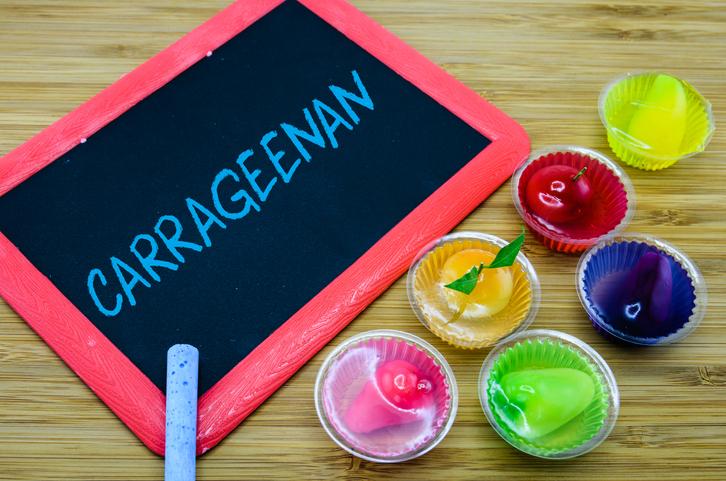
- Health advice
- Nov 03, 2013
When you think of processed foods, what comes to mind—chips, biscuits, candies? How about milk, ice cream, or beer? You should know that not every processed food arrives in your supermarket wrapped in plastic. Therefore, even some foods labeled as “organic” can contain harmful, cancer-causing agents like Carrageenan. And despite several studies conducted over the past four decades, Carrageenan remains a common ingredient in processed foods for humans and animals alike.
What is Carrageenan?
An extract of red seaweed, yet void of nutritional value, Carrageenan serves as a food-processing additive to blend foods and give them texture. This is especially useful in foods whose fat content has been reduced or removed making them “low-fat” and “fat-free,” respectively. Consequently, many dairy products like milk, cheese, and yoghurt, could very well contain Carrageenan.
Un-degraded Carrageenan vs. Degraded Carrageenan
Food processers create un-degraded Carrageenan via alkaline methods, which is considered safe for human consumption, although research says otherwise. Meanwhile, degraded Carrageenan is formed via acidic methods and is banned from use in food for humans. Considering that degraded Carrageenan develops inflammation in lab animals, it is understandable that people should not consume degraded Carrageenan. However, it is not degraded Carrageenan that is used in x-ray barium solutions and aircraft de-icing agents, but un-degraded Carrageenan! So, what exactly makes un-degraded safer than degraded?
Why any form of Carrageenan is not safe…
The answer to that question is nothing! Un-degraded Carrageenan, also known as food grade Carrageenan, has its own list of injurious effects. Studies show that food grade Carrageenan:
- Promotes gastrointestinal issues (irritable bowel syndrome, colitis, etc)
- Blocks lymph glands
- Stimulates tumour growth and inflammation
- Creates ideal conditions for breast cancer
- Contains monosodium glutamate (MSG)
- Generates glucose intolerance or insulin resistance
The truth is that somewhere in the process of adding Carrageenan to foods, people eating those foods, and then digesting them, un-degraded Carrageenan converts into the banned degraded form. Some scientists attribute that conversion to stomach acidity whereas others cite heating Carrageenan-containing foods, like in cooking, as the culprit. Either way, neither degraded nor un-degraded Carrageenan is safe for consumption.
What this all means for you, the consumer
Mr Vitamins prides itself on keeping you informed; so, be aware that Carrageenan could be an ingredient in almost anything you and your family consume. From dairy products and alcoholic beverages to baby formula and organic foods, always read the label! If you are already experiencing symptoms of Carrageenan poisoning, simply discontinuing consumption of those food products should improve your condition. Additionally, do not forget you can always ‘Ask a Naturopath’ for help along the way.
Related Articles
Recently Viewed
- ${ variant.price | currencyFromCents } | ${ variant.title } ${ variant.price | currency } | ${ variant.title }

















